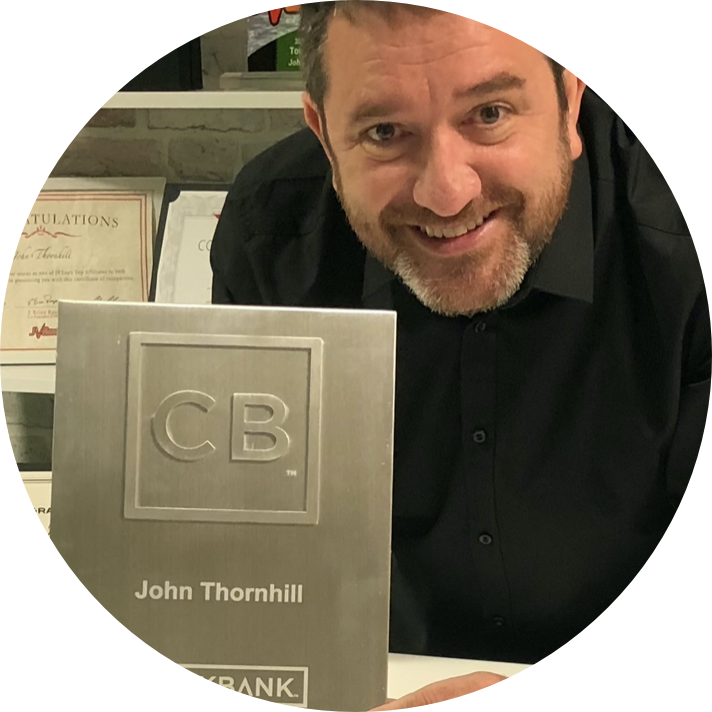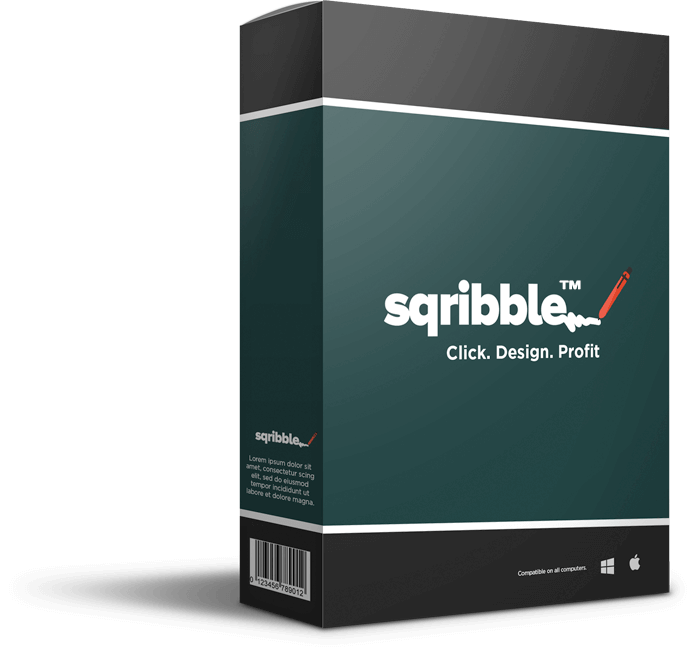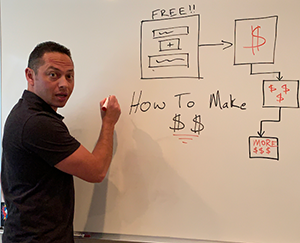The Senior Living Marketing Boom and How to Get Smart(er) with Your Strategy written by John Jantsch read more at Duct Tape Marketing
The Duct Tape Marketing Podcast with Debbie Howard In this episode of the Duct Tape Marketing Podcast, I interviewed Debbie Howard. Howard is the co-founder and CEO of Senior Living SMART, a full-service marketing agency serving the senior housing industry. She and her partner, Andréa Catizone, have successfully grown the agency from a startup to […]
The Senior Living Marketing Boom and How to Get Smart(er) with Your Strategy written by John Jantsch read more at Duct Tape Marketing
The Duct Tape Marketing Podcast with Debbie Howard
In this episode of the Duct Tape Marketing Podcast, I interviewed Debbie Howard. Howard is the co-founder and CEO of Senior Living SMART, a full-service marketing agency serving the senior housing industry. She and her partner, Andréa Catizone, have successfully grown the agency from a startup to a team of 40 employees over the past 12 years and recently celebrated by publishing her book Smarter(er) Marketing for Senior Living Communities.
During our conversation, we explored the essential strategies that senior living communities need to thrive in an increasingly competitive market. We discussed the importance of using smart marketing automation, effective strategies for attracting the right prospects, and why your website is the most important asset for lead conversion.
Whether you’re involved in senior living marketing or looking to optimize your overall strategy with quality automation and a robust online presence, this episode is packed with actionable insights.
Key Takeaways
[00:00] Introduction to Senior Living Marketing
[02:42] Understanding the SMART Marketing Framework
[05:16] The Role of Strategy in Senior Living Marketing
[08:35] Differentiation in a Competitive Market
[12:49] Aligning Marketing and Sales Strategies
[16:59] The Critical Role of Websites in Sales
[19:56] Introducing Smarter Marketing Certification
More About Debbie Howard:
- Add Debbie Howard on LinkedIn
- Check out Debbie Howard’s Website
- Grab a copy of her book, Smarter(er) Marketing for Senior Living Communities
Like this show? Click on over and give us a review on iTunes, please!
This episode of The Duct Tape Marketing Podcast is brought to you by:
Nobody does data better than Oracle. Train your AI models at twice the speed and less than half of the cost of other clouds. If you want to do more and spend less, take a free test drive at Oracle.
John Jantsch (00:01.01)
Hello and welcome to another episode of the Duct Tape Marketing Podcast. This is John Jance. My guest today is Debbie Howard. She is the co -founder and CEO of Senior Living Smart, a full -service marketing agency serving the seniors housing industry. She and her partner, Andre Catazon, have grown the agency from startup to 40 employees and are celebrating their 12th anniversary by publishing the first book that we’re going to talk about today, Smart Err, that errs in parentheses.
Debbie Howard (00:26.058)
you
John Jantsch (00:30.384)
Marketing for senior living communities, how to work smarter, not harder. Debbie’s also, by the way, a member of the Duct Tape Marketing Consultant Network. So we’ve known each other a long time. Welcome to the show, Deb.
Debbie Howard (00:42.912)
Thanks, John. Great to be on and be chatting with you today.
John Jantsch (00:46.694)
So there have been, over the years, a number of folks in the network have published books. Actually, there’s another one that I’m interviewing tomorrow that has book also coming out. What would you say, I mean, goals, or I should say books are a great tool for a lot of reasons. What would you say are your goals for publishing a book?
Debbie Howard (01:08.096)
Yeah, I would say number one, it’s because there’s been such a pivot in the really in the prospect, if you will, for senior living. we just the industry in general is just really hitting that leading age of boomers coming in. And there’s just a recognition that, you know, the way that our industry has marketed in the past is not going to be effective and is not going to work moving forward with this new generation of buyers that has very different expectations.
John Jantsch (01:19.42)
Mm.
Debbie Howard (01:36.066)
So really wanting to get ahead of that. We can only serve a certain number of clients in the senior living industry. There’s more need than there’s our ability to really serve them from a partnership level. So it gives us a greater reach to help more people. frankly, not everybody can afford a full service marketing agency of record. And so we hope it kind of levels the playing field. Maybe serve.
for some folks that are doing marketing on their own or using a marketing agency that doesn’t have senior living expertise. And then I think just selfishly, I do think that a book is also great for being able to get those keynote speakers and get on the conference stage and we’ll be developing a course as well with the option to either do it as just self -paced learning or really to do it from a certification standpoint with submitting to our
John Jantsch (02:10.599)
Yes.
Peace.
John Jantsch (02:18.46)
Mm -hmm.
Debbie Howard (02:33.61)
team of experts as they work through the course in order to kind of pass to that next level and achieve an actual certification.
John Jantsch (02:42.074)
You have, as the book…
denotes smart or marketing. have a smart, maybe your business as well, living smart, smart marketing framework. Is there a way to kind of break that quickly down what that is?
Debbie Howard (02:59.136)
Yeah, I think so. So SMART is an acronym. We’ve used it in our business since day one, but as it applies to the book, the S is strategy, the is marketing automation, the A is for analytics, R is for resources. That really encompasses content. And then the T is for technology. And in this case, it’s really more about that more tech stack and getting the right technology and then getting everything connected.
John Jantsch (03:14.14)
Hmm.
John Jantsch (03:24.779)
Right. So let’s start with strategy. One of my favorite topics, the S word, as you’ve called it. Why is that the, mean, this is a stupid question for me to be asking you because you and I have had lot of conversations about that. But for those out there listening, why do you, why do you call strategy the foundation of all effective?
Debbie Howard (03:49.794)
mean, especially for our industry, I think people have to focus on the strategy to attract their right and ideal prospect. You know, I think the industry is really fortunate that we don’t have to create any demand for ourselves. There is plenty of demand that’s created just by an aging population, right? We’re not out there having to, you know, really create that. But what we do have to create is a way to attract the right residents for each of our brands.
John Jantsch (04:04.594)
Hmm. Right.
Debbie Howard (04:19.008)
And I think in general, in the past, we’ve been able to just be better than a nursing home. And that was OK. The next generation of buyers wants a lot more than that. And so we really just can’t serve up the same messaging to attract the kind of prospect that’s going to be ideal in this next generation. So super easy to turn on lead generation.
John Jantsch (04:26.044)
Mm. Yeah.
Debbie Howard (04:46.722)
just open up the floodgates and you can just be inundated with leads. We have clients that have over 200 leads a month. They can’t possibly work the number of leads that they have, but it’s really about getting the right leads that are going to be right for your brand, that are going to engage, that are going to advance and turn into residents. And that’s really the part of the strategy that I think the industry has been lacking because everyone’s pretty much serving up vanilla ice cream with different color sprinkles.
John Jantsch (04:56.018)
Hmm.
John Jantsch (05:00.347)
Right.
John Jantsch (05:16.535)
Well, and not to mention, because you talked about demand, demand is actually growing, right? That demographic is growing, you know, at least for the immediate period of time. And so a lot of competition has jumped into it, right? A lot of people saw dollars and, you know, private equity as, you know, playing a big role in it now. So a big part of strategy, I’m guessing for you is helping people differentiate, you know, because there are now so many players in every market.
Debbie Howard (05:45.12)
Yeah, there are a lot of people coming in because they’re looking at the demographics and the age wave and saying, I want to get in on this, but they have no experience in the industry. you know, it’s very difficult industry to actually operate in. So a lot of it is helping people to find, you know, their brand voice and their differentiator. What’s your better and different story? You always talk about not just listing your services and amenities, but really what is the problem that you’re solving?
John Jantsch (05:51.964)
Right.
Debbie Howard (06:13.534)
And not everybody is right for every operator. Some people really want a small, cozy environment that’s more home -like. Some people want the chandeliers and the brand new communities that have all the bright and shiny technologies. And so it’s really about drilling down to understand what’s the story that you have that nobody else has out there. Because everyone has the dining and the transportation and the care, and everyone says it’s the best.
John Jantsch (06:23.922)
Mm
Debbie Howard (06:40.634)
But at the end of the day, they don’t have your story, your residence, your culture, your mission, your values. And so that’s what we really focus on to attract more people who look like the same people who chose that brand historically. So we do a lot with, you know, persona interviews and focus groups and all of that to really get to their special sauce.
John Jantsch (07:02.896)
understand what they do that’s unique. There’s a great listeners are probably getting tired of me using this quote because I use it all the time. But you know, when it comes to that kind of brand and differentiation, there’s a Dolly Parton quote that she said, just discover who you are and go be it. And I think that that’s a lot of there’s a lot of truth in that. mean, everybody has a brand. It’s just whether or not it’s intentionally communicated or developed. It’s you it you know, you
You can’t say, you know, we want to be this or be that. You are that, right?
Debbie Howard (07:36.93)
And as being okay with being that, right? So if you are a 25 year old building, you’re experienced, right? You’ve been serving the neighbors for decades. You probably have larger apartments, because guess what? 25 years ago, they built bigger apartments and suites, right? You probably have the A market, because now all the A locations are taken. So the new construction has to come in on a busy road or in a more industrial area, because they don’t have that.
John Jantsch (07:39.258)
Yeah, yeah.
John Jantsch (07:47.514)
Right.
Debbie Howard (08:06.178)
If you’re new, you’re only going to be new for a short period of time. So, you know, use that. But I do think that there’s always that resistance of having marketing help us pretend to be something that we’re not. And that’s, think, for brands, really, they just get in trouble. know, people who say to me, know, Deb, we want, we want the younger, older people in here, the people that are 50. We want you. I had a client who said, you know, I was relating that I had
John Jantsch (08:19.546)
Right, right, right, right.
John Jantsch (08:31.527)
Yeah.
Debbie Howard (08:35.648)
gone through this experience with my mother and finding a community. And they said, well, you know, no disrespect, but we don’t want your mother. We want you. And I was like, okay, so if you want me, I work full time. You know, do you have, you know, a workspace for me? You do you have a shared office space? Do you have a conference room? You know, I like to do pottery. Do you have a craft studio? Can I, do you have a kiln? Like, do I like play pickleball? Do you have any, you know, pickleball courts? And they’re like, no, we don’t have any of those things. I’m like, well, then how do you think you’re going to get me?
John Jantsch (09:05.07)
Yeah. Right. Right. Right. So the next two letters were marketing automation. it’s kind of a double edged sword or can be certainly, for, for folks because we can use it as a way to, not have to actually talk to anybody, for example. So how do you balance the fact that I’m guessing, the buyer in your particular case really wants to talk to something. They want to know who’s going to be, you know, helping mom, right? so how do you balance kind of that marketing automation with the need for so much human interaction?
in this type of environment.
Debbie Howard (09:37.858)
Yeah, great question. Because I think especially this leading edge of the boomers, they want to remain anonymous and autonomous for as long as possible. So it’s really up to marketing. think marketing gets the sale 70 % closed. They expect a lot of transparency. They want to go download guides and ebooks, and they want to watch videos and virtual tours. And it’s a very long journey. it’s
John Jantsch (09:46.247)
Right.
Debbie Howard (10:02.402)
you know, depending on which level of care, if it’s active adult and independent living, it’s over a year. If it’s assisted living, you know, it can be more than six months, 22 to 28 touch points along that journey. And the sales team cannot possibly do 22 to 28 touch points for every single prospect that they have in their pipeline. So we look at marketing automation as being a compliment and nurturing the not yet sales ready leads, those marketing qualified leads.
John Jantsch (10:14.034)
Mm.
Debbie Howard (10:32.018)
They’re not opting in to schedule a tour or clicking to call. But if we let them download a brochure or a funding guide, a family decision toolkit, they will opt in and then we nurture them. And there should really be no dead ends to the prospect journey because it is so long. But you’re right, when that prospect is ready to talk to sales, they expect to talk to sales immediately.
John Jantsch (10:58.639)
Yeah
Debbie Howard (10:59.99)
So it takes a long time to get somebody to pick up that phone and to make that advance from a marketing qualified lead to a sales qualified lead. But I think that’s what marketing automation does so well. And we look at reverse engineering the move -ins and where did they come from? What was the original attribution source? But also how many of them entered in with an intent to talk to sales? So we’re able to take that subset of people who’ve gone all the way through the journey, become a resident in that community, and we’re able to look at every single touch point.
John Jantsch (11:21.394)
Hmm.
Debbie Howard (11:29.826)
the way. And what’s interesting is about for most of our clients, about 35 to 45 percent of the move -ins, the actual residents did not start out having intent to talk to sales. They progressed all by themselves with marketing automation without the sales team having to do anything.
John Jantsch (11:50.982)
Yeah. And I think that’s a part of lot of people underestimate too, is how much of that is going on without our knowledge, right? I mean, and that we can actually lose the sale before we had ever had the opportunity to make the sale, you know, without really understanding that people need, people want to go on parts of that journey on their own, you know, because nobody really wants a sales presentation, right? They quite often want to know how something’s going to work and be reassured that, you know, what you promised is going to happen.
But that happens very late in the journey a lot of times. how do you, and you and I have talked about this before, so I know a little bit, how do you align then that marketing approach with sales? Because a lot of times sales, my mother and father and mother -in -law father -in -law were in assisted living facilities and sales pretty much looked like whoever was walking by the phone when it rang.
So how do you get that, you alive?
Debbie Howard (12:53.642)
It’s actually a friction point that we always have to work through with every client because salespeople think if they have every call and every lead, they’re going to do better. But the reality is not everyone is ready for a sales interaction. And if you force it, you will lose them and they will go somewhere else. So it’s really a matter of respecting the prospect and allowing them to decide how they want to engage with you.
John Jantsch (12:56.081)
Yeah.
Debbie Howard (13:20.06)
and allowing them to raise their hand when they’re ready for that sales interaction. So how it usually goes is when we’re kind of talking to a new client, we’re talking about how marketing automation is a compliment. It does a lot of the rote and repetitive administrative work that the sales team doesn’t have to do. Somebody can go on and schedule a tour. They can pick a date and time. Marketing automation is gonna confirm their appointment, thank them for scheduling, remind them that they’re coming tomorrow.
And then after the visit’s over, maybe ask them for a review. And so we want to get the salespeople the right leads at the right time. They can only manage so many. So we want them to have those high intent, ready to advance prospects, but we can’t lose the pipeline. So at first the sales team likes that, right? That sounds really good. I’m gonna get the high intent, ready to convert leads. I’m gonna get fewer leads to work.
can spend more time with them and do what I do best, building relationships and report. It sounds great until 70 % of their leads disappear.
And then it’s like, well, where’s my leads? I want more leads. Well, these are all the leads that you threw away. These are the leads that you moved to loss. These are the leads that you moved, that you tried to reach twice and then moved to cold. But there’s a little bit of a panic that sets in until they start seeing that the pipeline is advancing. Marketing automation is delivering them month over month. These sales qualified leads. And what’s interesting is when you look at the length of stay,
John Jantsch (14:28.144)
Yeah, yeah, yeah. Right.
Debbie Howard (14:55.298)
for somebody who comes in as a sales qualified lead with lots of urgency, like I got to move in today, mom’s getting out of rehab, we need something immediately. Their length of stay is far shorter, which means your revenue is far less and they’re higher acuity, it’s more stress on the team. The people that actually have the longest sales site nurturing cycle and start as marketing qualified leads end up having almost double the length of stay.
John Jantsch (15:02.364)
Mm, right.
Debbie Howard (15:23.2)
So double your revenue, they stay longer, they have a better experience and it’s not a crisis situation.
John Jantsch (15:30.108)
That’s an interesting observation that could probably apply to a lot of industries. I sometimes talk about almost making people jump through hoops, making them consume certain content, making sure that when they do show up, they’re educated as much as like why we’re a good fit. I know some people push back on that. like, no, I just want the phone to ring. you really do, there’s a qualification process that goes through that. I know that’s not exactly what you were describing, but
But I think that’s interesting.
Debbie Howard (16:00.61)
think it is because I think that the assumption is, and we get a lot of people who say, I just want sales qualified leads, like just give me phone calls and tours. Sales qualified means they have an intent to speak to sales. It doesn’t mean they’re financially qualified or they’re going to be a good fit. And so there’s always has to be that additional, you know, qualification that happens in sales.
John Jantsch (16:07.246)
Right, right.
John Jantsch (16:17.808)
Yeah, yeah, yeah, yeah.
Debbie Howard (16:26.934)
for those people that have that urgency. But I think sometimes people have a very warped definition of what a sales qualified lead is. They think you’re handing them somebody who’s gonna tour today and move in tomorrow. And when they find out, know, they’re not a fit either from a health perspective or a financial perspective, it’s like, what has marketing done for us? Well.
John Jantsch (16:35.729)
Yeah.
John Jantsch (16:39.483)
Yeah.
John Jantsch (16:48.498)
Yeah. Yeah. And, and another element I’m sure that they have to deal with a lot is the 50 year old oldest daughter of the family has never bought this product before. Right. Really.
Debbie Howard (16:59.008)
and probably never wanted to and hopefully wouldn’t have to. And it’s disruptive and it’s expensive and it’s emotional and all of those things.
John Jantsch (17:05.586)
Yeah. Yeah. Yeah. Yeah. So, I know we fight with a lot of folks over websites. was one I was just looking at today. They were like, we need you to improve our website. was like, your website’s a complete takedown. You know, it is basically a brochure from 20 years ago. well, how do you explain to people the role, that their website plays in the sales process?
Debbie Howard (17:27.474)
We just tell them it’s their most important marketing asset. end of story, hard stop. And so if they haven’t done anything in three years, they need to do something. Now, they don’t want to hear that. And they want to talk about a refresh. Will it cost us more to refresh a bad website than it does for us to stand up a brand new, contemporary, mobile first, responsive type of a website?
John Jantsch (17:30.374)
Yeah.
Debbie Howard (17:54.434)
You know, every marketing channel in our industry drives people to the website. That’s where the conversion happens. That’s where the attribution happens. And that’s where the nurturing begins. So, you know, 90 % of people looking for a senior living community will visit the website during their journey. So we feel like it’s the number one most important investment.
John Jantsch (18:14.266)
Yeah. Well, and I think what a lot of people underestimate too, is like what you just said, that’s quite often where they start. Because again, you got to start somewhere. That’s the easiest thing. We sit down at a desk and we do a little research and that’s where we’ll start. But what I think a lot of people underestimate is as I get more involved in the journey, I’ll come back, but I have different objectives now. I’m there for a different reason now. Right. And so I think a lot of people underestimate that is just like, no, it just needs to have our phone number on there. Tell them what we do. But you know, no, I’ve got different
questions and objectives my third for time there.
Debbie Howard (18:47.394)
100%, it completely changes. We look at the three stages, the weather, the stage, the where stage and the when stage. And people in the weather stage are just trying to figure out, know, whether it’s now or, you know, the new year, whether I can afford it, whether dad’s going to get the veterans benefit. There’s all those weather questions. And then there’s where questions that are about, you know, the brand and then the when is about the urgency, but you need content, content, content to, for every single stage, every question.
John Jantsch (18:59.079)
Yeah.
John Jantsch (19:06.097)
Yeah.
John Jantsch (19:15.76)
Yeah. You, are, mentioned the course, but you were actually going as far as a smarter marketing certification. want to talk about that and maybe why, why you decided to go down that route.
Debbie Howard (19:28.298)
Yeah, well, you we think that there’s so much opportunity for education. We don’t have an industry certification in marketing. You know, we do have other things like a certified senior advisor. There are certain things, but we just felt like there’s a real opportunity in the industry to create some good standards and benchmarks. And really, for me, it’s always about how do we make this a better experience for the prospect?
John Jantsch (19:37.116)
Hmm.
John Jantsch (19:56.668)
Yes, yes.
Debbie Howard (19:57.694)
And if we can help people deliver a better experience, it’s gonna be a better reflection on the industry because to a large degree for people that are serving the assisted living and memory care part of seniors housing, they are selling a product that nobody wants, hopes they don’t need, have never bought, don’t know how to do it. And it’s challenging and it’s a heavy lift. So we feel like we can deliver a lot.
John Jantsch (20:15.122)
Mm -hmm.
Debbie Howard (20:25.514)
a lot of value to the industry. And we allow people, if they just want to take the course just for learning, just to do a better job internally or maybe holding another agency accountable, they can do that without the certification. But people that are really serious, each of our subject matter experts will be doing the videos, teaching their part of the course, and then they will review the work. So for instance, if somebody’s doing a class on persona development, right, they’re gonna have to submit.
their focus groups and their interviews and their outcomes and their persona documentation. And someone on our team will review it and then pass them or give it back to them for some more work.
John Jantsch (20:54.642)
Mm -hmm.
John Jantsch (21:08.71)
Yeah. And I think I’ve always believed the more education you can do, even with somebody who turns around and becomes a client, they’re a better client, right? Because they understand why you’re doing what you’re doing or why you’re asking them to do what, what you need to do. That’s always been my, my point of view. Yeah. Well, Debbie, it was great getting to some time with you. you want to tell people where they might connect with you, obviously find out about the certification and pick up a copy of smarter marketing for senior living communities.
Debbie Howard (21:23.746)
Yeah, absolutely.
Debbie Howard (21:37.184)
Yeah, thank you, John. I’m on LinkedIn, very active on LinkedIn, so you can definitely find me there. Senior Living Smart is the website. The book will be published on Amazon, so available on September 17th, which is next week.
John Jantsch (21:53.298)
Yep. Yep. Depend upon when you’re listening to this September 17th, 2024. bet you believe it or not, Debbie, people come back and listen to these years later. So I always like to get the date sort of out of their relative at least, but anyway, well, congratulations. And again, hopefully we’ll run into you soon out there on the road.
Debbie Howard (22:10.486)
Thanks, John.
Sign up to receive email updates
Enter your name and email address below and I’ll send you periodic updates about the podcast.
Recommended Story For You :

How To Make $3493 Commissions Without Doing Any Selling

Successful dropshippers have reliable suppliers.

People Think I Use A Professional Voiceover Artist. NO! I Just Use Speechelo!

Make Money Testing Apps On Your Phone Or Tablet

Make More Money or Lose Everything

Sqribble Is The ONLY eBook Creator You’ll Ever Need.

Work & Earn as an Online Assistant

Create Ongoing Income Streams Of $500 To $1000 Or More Per Day

It's The Internet's Easiest Side Business.






